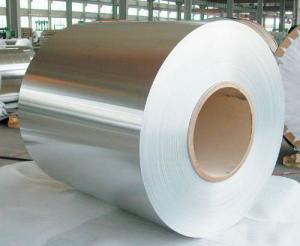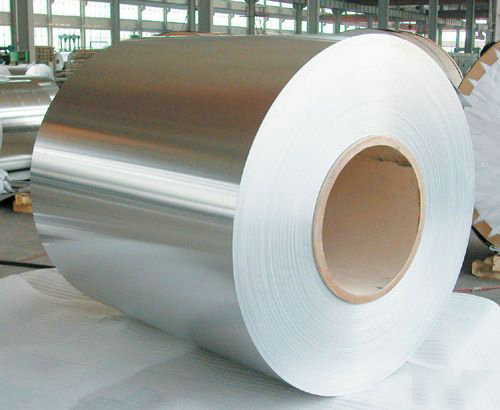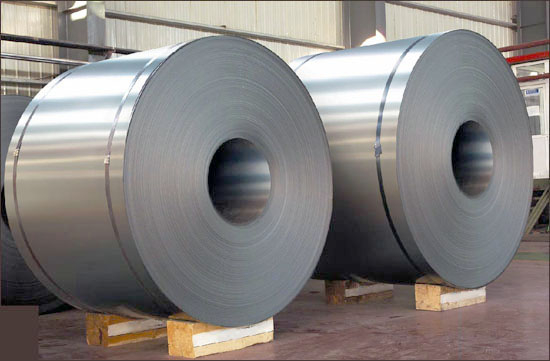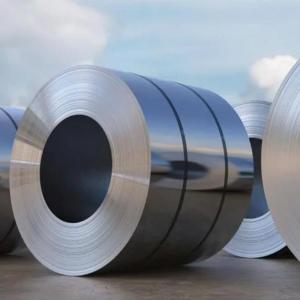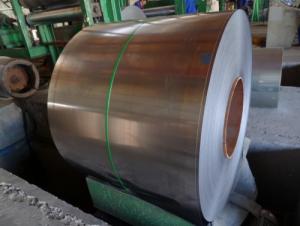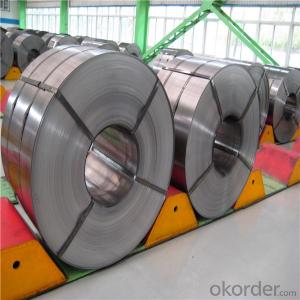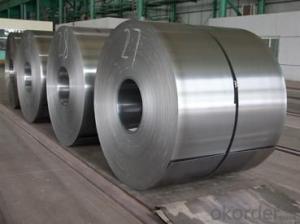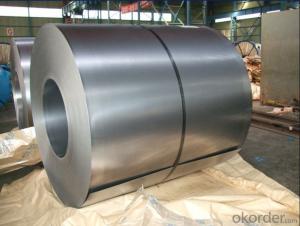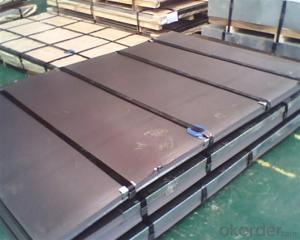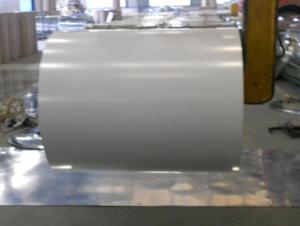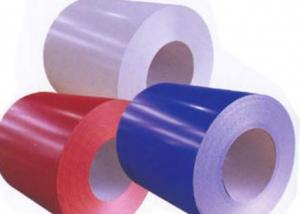COLD ROLLED STEEL COIL-DC01--High Strength
- Loading Port:
- China main port
- Payment Terms:
- TT OR LC
- Min Order Qty:
- 50 m.t.
- Supply Capability:
- 10000 m.t./month
OKorder Service Pledge
OKorder Financial Service
You Might Also Like
COLD ROLLED STEEL COIL-DC01--High Strength
1.Brief Introduction
Cold Rolled Steel is steel thathas been worked below its recrystallization temperature by passing it between apair of rollers. Recrystallization temperature is the temperature at whichgrains in the lattice structure of the metal have been rearranged, leaving it freeof strain and deformations. Cold Rolled Steel is pre-treated before being coldrolled with a process known as pickling, which uses strong acids to removescale and other impurities. The Cold Rolled Steel is then passed throughrollers to reduce its thickness. Most cold rolling takes place in multiplepasses and as the size of the Cold Rolled Steel is further reduced, itsstrength and hardness both increase, but its ductility decreases. After coldrolling, heating the metal up in a process known as annealing can restore someof its ductility. The final Cold Rolled Steel may be manufactured in the formof sheets, strips, bars, or other forms.
2.Application
It’s widely used in outdoor andinterior decoration, furnishing manufacturing, home appliance, automobile etc.
3.Main Specification
COLD ROLLED STEEL | |
THICKNESS | 0.4-2MM |
WIDTH | 600-1250MM |
SHEET LENGTH | 0-6000MM |
COIL ID | 508MM OR 610MM |
SURFACE TREATMENT | MATT FINISH/BRIGHT FINISH, OILED/DRY |
ANNEALING METHODS | BRIGHT ANNEAL/BLACK ANNEAL |
COIL WEIGHT | 1-25MT |
4.Package & Delivery
Package details: Standardseaworthy packing for international delivery.
Delivery: According to theexact quantity of your order.
5.Cold Rolled Steel Images
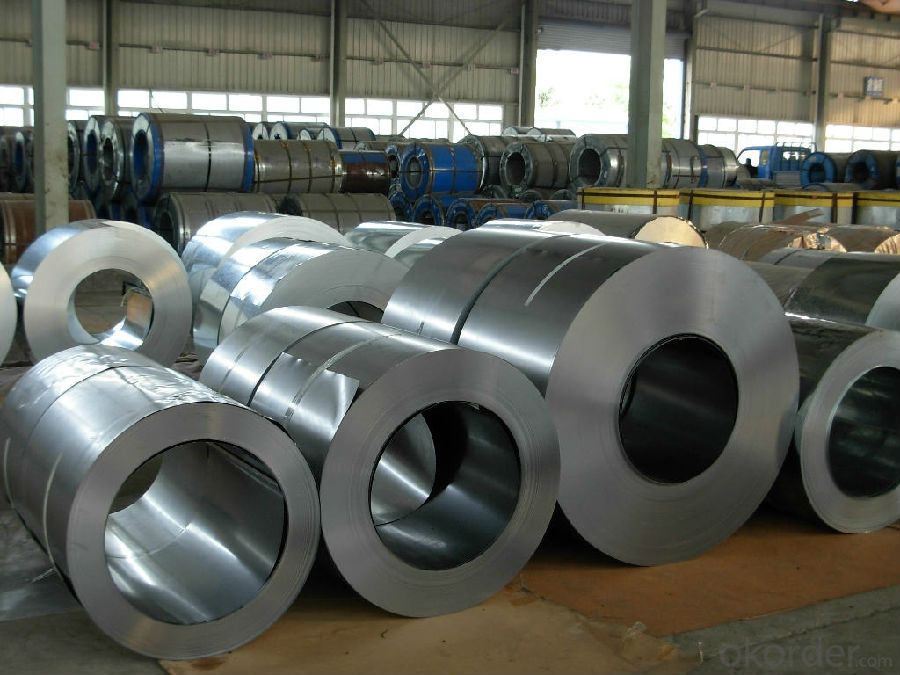
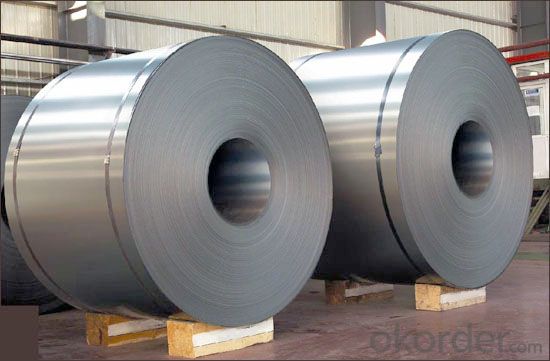
6.Advantage
1. High Quality SurfaceFinish
2. High Dimensional Precision
3. Excellent mechanicalproperty
7. FAQ
1.How to guarantee the quality of the products?
We have established the international advanced quality management system,every link from raw material to final product we have strict quality test;We resolutely put an end to unqualified products flowing into the market. At the same time, we will provide necessary follow-up service assurance.
2. How long can we receive the product after purchase?
Usually within thirty working days after receiving buyer’s advance payment or LC. We will arrange the factory manufacturing as soon as possible. The cargo readiness usually takes 15-25 days, but the shipment will depend on the vessel situation.
- Q: What are the different types of steel coatings for fire resistance?
- There are several types of steel coatings that are used for fire resistance, including intumescent coatings, cementitious coatings, and ablative coatings. Intumescent coatings are designed to expand when exposed to heat, forming an insulating char layer that protects the steel from high temperatures. Cementitious coatings are made of cement, aggregates, and additives, providing a dense and fire-resistant layer on the steel. Ablative coatings are designed to release a gas or vapor when exposed to heat, creating a protective barrier against fire. These coatings vary in their application methods, thickness, and performance characteristics, providing different levels of fire resistance for steel structures.
- Q: How is steel used in the production of amusement park rides?
- Steel is commonly used in the production of amusement park rides due to its strength, durability, and ability to withstand heavy loads and extreme weather conditions. It is used to construct the framework, supports, and tracks of roller coasters and other thrill rides, ensuring safety and stability for riders. Steel is also used in the fabrication of various components, such as brackets, bolts, and hinges, that are essential for the smooth operation and structural integrity of amusement park rides.
- Q: How are steel products used in the manufacturing of appliances and consumer goods?
- Steel products are used in the manufacturing of appliances and consumer goods due to their durability, strength, and versatility. They are commonly utilized in components such as frames, casings, and structural supports, providing stability and robustness to the final product. Steel's resistance to corrosion also ensures a longer lifespan for appliances and consumer goods. Additionally, steel can be molded and shaped into various forms, allowing manufacturers to create intricate designs and meet specific functional requirements. Overall, steel products play a crucial role in enhancing the performance, reliability, and aesthetics of appliances and consumer goods.
- Q: How is stainless steel different from other types of steel products?
- Stainless steel is different from other types of steel products primarily because it contains a minimum of 10.5% chromium, which forms a protective layer on the surface, preventing corrosion and rusting. This unique composition makes stainless steel highly resistant to stains, oxidation, and even high temperatures. Additionally, stainless steel is known for its strength, durability, and aesthetic appeal, making it a popular choice in various industries such as construction, automotive, and kitchenware.
- Q: How do steel products contribute to the transportation and logistics sector?
- Steel products contribute significantly to the transportation and logistics sector in numerous ways. Firstly, steel is used extensively in the construction of vehicles, such as cars, trucks, trains, ships, and airplanes, providing them with the necessary strength, durability, and safety. Steel also helps in reducing the weight of vehicles, which enhances fuel efficiency and reduces carbon emissions. Moreover, steel is used in the manufacturing of infrastructure and equipment required for transportation and logistics, including bridges, railway tracks, shipping containers, and storage facilities. Its robustness and resilience ensure the smooth and secure movement of goods and people. Overall, steel products play a vital role in improving efficiency, reliability, and sustainability in the transportation and logistics sector.
- Q: What are the main properties of steel?
- The main properties of steel include high strength, durability, and excellent tensile and compressive strength. Steel also has a high melting point, good thermal conductivity, and is resistant to corrosion and rusting. It is a versatile material that can be easily formed and shaped, making it suitable for a wide range of applications in industries such as construction, automotive, and manufacturing.
- Q: How do steel products contribute to the defense and military sector?
- Steel products play a crucial role in the defense and military sector as they are used in the production of various equipment and structures. Steel is known for its strength, durability, and resistance to damage, making it an ideal material for manufacturing weapons, vehicles, submarines, aircraft carriers, and other military hardware. Additionally, steel is used in constructing military infrastructure such as airfields, barracks, and command centers, providing the necessary protection and support for military operations. Overall, steel products contribute significantly to the defense and military sector by ensuring the reliability, safety, and effectiveness of various defense systems and infrastructure.
- Q: What are the applications of stainless steel in the food industry?
- Stainless steel has numerous applications in the food industry due to its unique properties. It is commonly used in food processing, storage, and equipment manufacturing. Its corrosion resistance makes it ideal for food contact surfaces, ensuring hygiene and preventing contamination. Stainless steel is used in the production of utensils, sinks, countertops, and appliances due to its durability, easy cleaning, and resistance to heat and chemicals. It is also used in food transportation, such as tanks and containers, as it maintains the quality and integrity of the food during transit.
- Q: How are steel tubes used in the fabrication of bicycle frames?
- Steel tubes are commonly used in the fabrication of bicycle frames due to their strength, durability, and ability to be easily manipulated into various shapes and sizes. These tubes are carefully selected and welded together to form the main structure of the frame, providing the necessary support and stability for the rider. The specific diameter and thickness of the tubes are chosen based on the desired strength and weight of the frame. Overall, steel tubes play a crucial role in ensuring the structural integrity and performance of bicycle frames.
- Q: What are the different types of steel sheets and their uses in the construction of prefabricated buildings?
- There are several types of steel sheets commonly used in the construction of prefabricated buildings. These include cold-rolled steel sheets, hot-rolled steel sheets, galvanized steel sheets, and stainless steel sheets. Cold-rolled steel sheets are known for their smooth finish and high strength. They are commonly used in the construction of walls, roofs, and floors in prefabricated buildings due to their excellent durability and resistance to corrosion. Hot-rolled steel sheets are known for their superior strength and versatility. They are often used in the construction of structural components, such as beams and columns, in prefabricated buildings. Galvanized steel sheets are coated with a layer of zinc to protect them from corrosion. These sheets are commonly used in the construction of prefabricated buildings where exposure to moisture or harsh weather conditions is a concern, such as in coastal areas or industrial settings. Stainless steel sheets are highly resistant to corrosion and have excellent mechanical properties. They are commonly used in the construction of prefabricated buildings in environments where hygiene and durability are crucial, such as hospitals, laboratories, and food processing facilities. Overall, the different types of steel sheets used in the construction of prefabricated buildings provide a range of options to meet specific requirements for strength, durability, corrosion resistance, and aesthetic appeal.
Send your message to us
COLD ROLLED STEEL COIL-DC01--High Strength
- Loading Port:
- China main port
- Payment Terms:
- TT OR LC
- Min Order Qty:
- 50 m.t.
- Supply Capability:
- 10000 m.t./month
OKorder Service Pledge
OKorder Financial Service
Similar products
Hot products
Hot Searches
Related keywords
